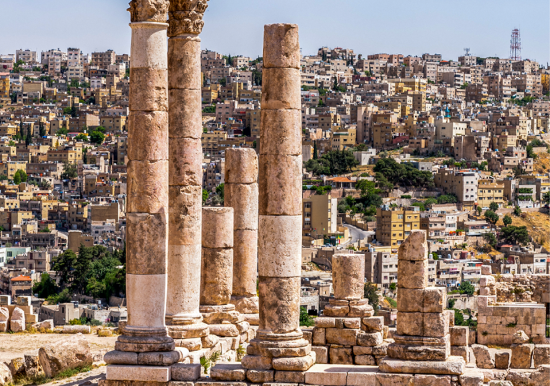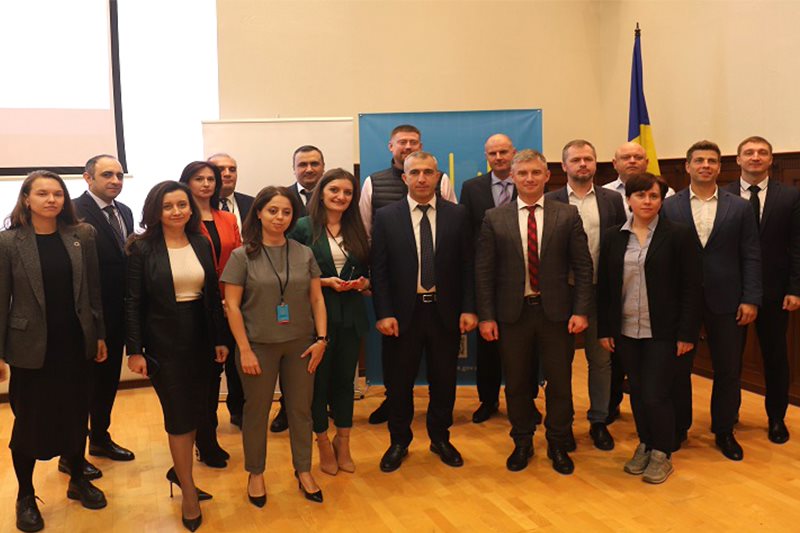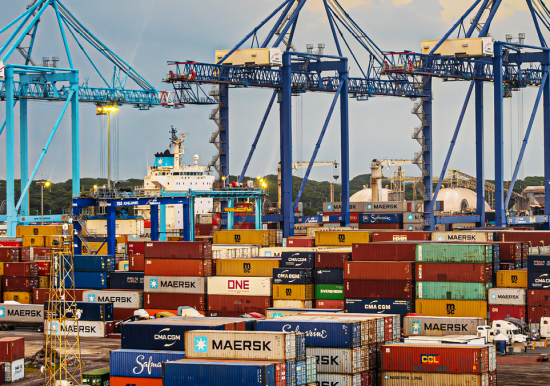
Nurturing a New Culture of Integrity in Armenia
Haykuhi Harutyunyan, Chair, Corruption Prevention Commission, Armenia
Haykuhi Harutyunyan has over 15 years of experience working with civil society organisations on rule of law, judiciary, and human rights issues. In 2019. she was elected to chair the Corruption Prevention Commission (CPC) of the Republic of Armenia, a newly established independent body that develops and implements the country’s corruption prevention policies.
Rebuilding the Armenian System
Although Armenia has been an independent country for more than 30 years now, the legacy of the Soviet era continues to pose challenges. These include lack of judicial and administrative independence, corruption, territorial conflict and so on. Armenia inherited a government rife with oligarchs and patronage, a system in which the government did not actually lead or govern; it worked only to benefit an elite group.
With independence, the struggle in civil society was to try and dismantle this old system and make democracy work. This is what inspires my generation, which saw the transition to independence. We want to build up a new Armenia—not the one our parents lived in, but one where our children will have a different understanding of the country. A country we can be proud of.
In 2018, a peaceful revolution led the government to resign. The new government immediately announced that fighting corruption and preventing the old system of political patronage would be a top priority on their agenda. At the time, I was a human rights lawyer in civil society, working on policy issues at local, regional, and international levels. In 2019, I was invited to be a candidate for a newly established institution, the Corruption Prevention Commission of the Republic of Armenia (CPC). Five members of the Commission were voted in by Parliament, and among them I was elected as Chair.
I see this as a vital role because it demonstrates to the country an enduring will to fight corruption, and to change society so that it can resist corruption. It is based on a firm belief in the rule of law; that state institutions can and must lead and bring about this societal change.
My first priority was to ensure the creation of a strong and independent institution, with an effective regulatory framework to prevent corruption—and in doing so demonstrate that Armenia can overcome its past difficulties and create a new future. The Commission had to start from scratch, from less than zero, because we were working not from nothing, but with a system that was already actively doing harm. We could not let the existing system continue because that would exacerbate the problem, taking us away from our goal. So, we had to create an alternative.
When the CPC started, we were only five people: now, after only two years, we have 45 staff members. We have six departments with a very broad mandate to fight corruption, using a range of tools.
Preventing Corruption: New Priorities
An important priority of the CPC is to regulate how Armenia’s public officials declare their assets and potential conflicts of interests annually. Beyond a certain amount of expenditure, public officials—as well as their family members and those who interact with them regularly—must declare what they have spent money on, to ensure that every transaction is lawful. From 3,500 people making annual declarations, we now have over 35,000 people doing so.
This procedure is very important to ensure the accountability of public officials. We impose sanctions whenever there is any kind of inconsistency or incomplete information in the declarations. Whenever there is a reasonable suspicion that the wealth, or a change in wealth, of a public official cannot be justified by their lawful income, we send the case to the Prosecutor General’s Office.
In the past year, some important criminal cases have been initiated based on our findings. Even judges have been removed from their positions after investigation, and members of the executive branch of government have been sanctioned for not submitting full declarations.
These moves send a signal to all public officials, and to society in general, that impunity and illegitimate dealings will no longer be tolerated in Armenia. They uphold a principle of the rule of law: that everyone, no matter how important or well connected, is equal before the law, and will face the same appropriate sanctions as anyone else who has violated the law. These actions are signs that we have something that really does work, and that the country is on the path to change.
Another new but important aspect of our work is integrity checking. We have established a new system, based on a methodology developed with the support of the Council of Europe, to verify a person’s background before they are appointed to a particular position. We look at the individual’s previous work behaviour, wealth, and connections, to ensure they have not been using their connections or family relations for unlawful gain.
Since 2020, we have submitted more than 100 opinions on candidates ranging from judicial nominees and public prosecutor nominees to anticorruption and law enforcement officials. These have included some negative assessments, for it was crucial that some of these candidates not be appointed to the positions for which they were applying. This also signals to newcomers that the old system of relying on family connections or other undue influence for an official position is no longer acceptable.
Going forward, we will broaden the positions for which we conduct integrity checks. We will also raise more awareness because prevention is different from punishment; prevention requires long-term investment in training and education. We also need to raise public awareness about the harm corruption does and empower citizens and civic groups to act against it.
Leveraging Technology
When we started this Commission, we had an intuitive understanding that we would receive a large amount of data that would not be possible to analyse manually. So, we looked into an automated approach, in particular for asset declarations.
We are developing a platform using artificial intelligence and algorithmic decision-making that will both manage the data collation process and automate reporting to the public. It will allow us to analyse the data and immediately identify gaps, or trends; for example, it may flag any unusual change in the wealth of a particular public official. Technology can not only help us to manage the massive amounts of data, but also use it to predict trends and anticipate potential wrongdoing. It will thus have a truly preventative function.
In the process of building this system, we have been partnering with the private sector, and developing a code of conduct for them as well. Conflict of interest, equal opportunity, and rules-based management needs to be in place in the private sector too. In this way, the development of digital technology will help to improve norms in society at large.
We have a young staff, and one of my tasks is to make sure that everyone goes home after work each day with a clear answer to the question: what have I done for the country? I hope this can have a multiplier effect that will ripple through society at large.
Haykuhi Harutyunyan, Chair, Corruption Prevention Commission, Armenia
Changing Societal and Professional Norms
The CPC’s work is to ensure that the state has an institutional and systemic approach to preventing corruption, and that the institutions themselves will be resilient against corruption. We are targeting all the areas where corruption traditionally took hold and where there was a high degree of impunity to act improperly. We are also working to change attitudes, so that the societal norms themselves will evolve, and this new culture that respects the rule of law can be sustained.
The Commission represents a new kind of public institution. It may sound simple, but to have a new institution led by women, where there is a majority of women in positions of authority and leadership, is already a game changer. It is not what Armenian society, where institutions are most often led by men, is accustomed to. It immediately shifts attitudes, not always in a positive way, but it already offers the image of a new way of doing things.
Once that happens, you then go on to provide the substance, you act with that change as part of the way you conduct yourself, and that is how you change the rules of the game that everyone used to play. After a time, the new norms are accepted as if they were always in existence.
There are already behavioural changes you can notice among public officials. They have become much more careful, because they know we are serious about our regulations and our sanctions. They realise our checks have real consequences for themselves and their careers, and word gets around. Today, we have more confidence that our work is being taken seriously.
Apart from behavioural norms, it is also important to improve our professional standards. A legacy of the Soviet era is that we have formal institutions that are designed to benefit the regime, not the state. We are trying to change them, so that they operate more professionally, and ensure that the rule of law is based on clear regulations that are relevant, effective, and serve people. This is a huge and complex task that requires changing the existing legislation, and it is all interlinked: you change one small piece, and the rest of the system is affected.

Finding the Right People to Enable Change
We were fortunate that the five original commissioners of the CPC are professionals in our own right, with expertise in specialised fields such as law, economics, auditing and banking. Our combined experience makes a difference in trying to change how state institutions operate.
Initially, we struggled to find suitable staff with the right professional expertise. Then we shifted our approach and decided instead to recruit good young people who have potential, and then train them up on the job, based on our own professional experience.
Not everyone can make it: learning by doing requires a certain capacity, such as adaptability and the ability to act on several different issues at the same time. When we can, we also offer professional training. This developmental approach then becomes an incentive for others to join us. At the same time, we are also trying to persuade the government to offer better salaries and to adopt a more specialist approach to hiring.
Inspiring Change and Keeping the Momentum Going
Of course, all this is just the beginning of a long, slow process. We are working against entrenched interests. What always comes to mind is, with the limited time one has, how quickly one can deliver real results.
But this challenge also keeps us going. To even plant the seeds of change is already a result, which was not possible before. When you work against the system, sometimes shaking or tearing it down, you can end up with chaos, failure, and noise. That too is a consequence of change. The beginning of such a process is always painful, when the dirty work must be done. We should not be afraid sometimes of failing. And every day brings some sign, however small, that things are changing, that change is possible. At the end of the day, when you see the change you’ve made, that also motivates you to carry on the next day.
I hope our work inspires others and becomes a source of further change. We have a young staff, and one of my tasks is to make sure that everyone goes home after work each day with a clear answer to the question: what have I done for the country? I hope this can have a multiplier effect that will ripple through society at large.
I tell my staff that we may not see the results of what we do immediately. To build a country is not an easy task. But it is an honour, and a privilege. They can be proud being part of the change, in setting up a new institution with a new approach, to ensure a bright future for those who will come after us.
More Stories


Global Influence & Reputation Country Snapshot: Türkiye

